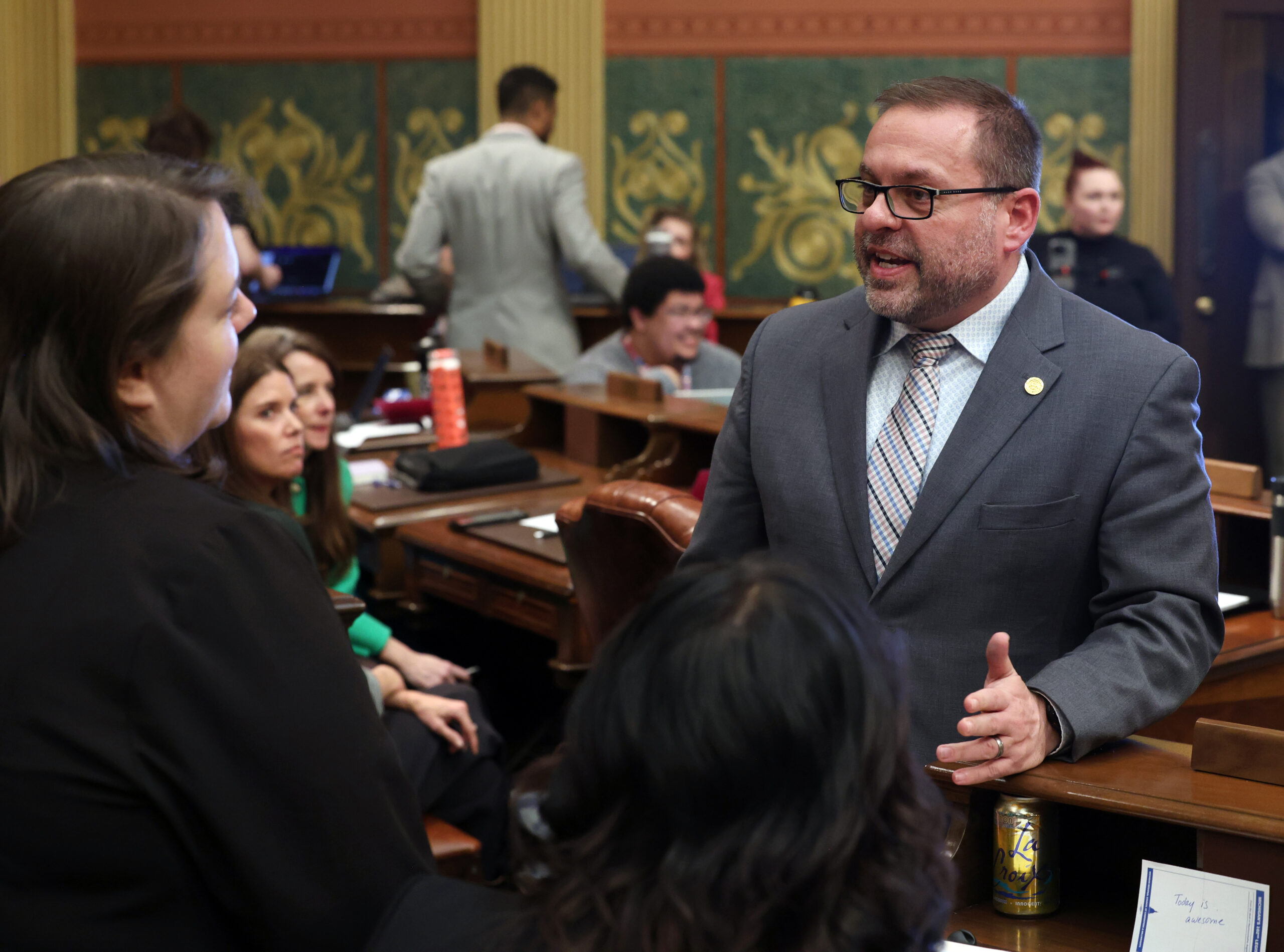
State Rep. Mike McFall (D-Hazel Park) speaks on the House floor at the Capitol building in Lansing.
LANSING, Mich., July 10, 2025 — State Rep. Mike McFall (D-Hazel Park) introduced three bills that would expand mental health care access and protect patients — House Bills 4685, 4684, and 4683.
HB 4685, otherwise known as the Collaborative Care Model (CoCM), will empower primary care systems to use evidence-based guidelines to proactively manage patients’ mental health care with a team until they improve or are referred to more intensive services. The Collaborative Care team is led by a primary care provider (PCP) and includes behavioral health care managers, psychiatrists, as well as other mental health professionals all empowered to work at the top of their license.
“The health care system works best when all practitioners are working together for patient-centered results. This means, for example, ensuring that patients have an established relationship with their health care provider,” McFall said. “The Collaborative Care Model will expand access to mental health services in a trusted primary care setting while helping recruit and retain mental health professionals to Michigan.”
“Michiganders will benefit from Bill 4685 because it will mean better access to the quality mental health and substance use services they need,” said William Beecroft, M.D., Distinguished Life Fellow of the American Psychiatric Association and president of the Michigan Psychiatric Society. “Collaborative Care is an evidence-based model that’s helping people around the country and I’m glad to see the Michigan Legislature promoting this effort.”
HB 4684 will require insurance companies to develop a plan to provide coverage and access to a broad spectrum of pain management services as an alternative to prescribing opioids or narcotic drugs. The U.S. Centers for Disease Control and Prevention has research that shows non-opioid therapies are at least as effective as opioids for acute, subacute and chronic pain.
“There is no reason to arbitrarily prescribe opioids when there are non-addictive options that are just as effective,” McFall said. “An opioid epidemic has plagued our state, and this legislation will help stop the addictive and potentially life-altering medication from being prescribed so easily.”
“It is essential that we level the playing field so that patients have access to affordable, effective non-opioid pain treatment options. That is exactly what Rep. McFall’s legislation does,” said Elaine Pozycki, founder of Prevent Opioid Abuse. “Non-opioid pain treatment prevents dependence, addiction and overdoses. In my case, if these options were available and discussed with me, I’m sure that my son Steven — who was prescribed OxyContin, became addicted and succumbed to an overdose — would still be with us. I urge the Michigan legislature to speedily adopt this legislation so fewer Michigan families will have to go through what I went through.”
HB 4683 will require health insurance companies to follow best-practice clinical standards when making mental health and substance disorder coverage decisions. Insurance companies already follow best-practice clinical standards when covering physical health, this bill ensures our mental health and substance use disorder treatment has equal coverage.
“Our mental health is just as important as our physical health,” McFall said. “This bill will help create best-practice clinical standards in mental health care, build trust between patients and providers, and prevent unnecessary denials of mental health and substance use disorder treatment.”
“We are thrilled that Rep. McFall is introducing a commonsense bill to address Fair Standards in Mental Health Care for Michiganders,” said David Lloyd, Chief Policy Officer at Inseparable. “This bill will close loopholes that allow insurance companies to override doctors’ recommendations and unfairly deny coverage for mental health and substance use treatment. By holding insurance companies to the same best-practice standards used by doctors, the bill promotes transparency, protects families from unjust denials and ensures families get the care they’ve already paid for through their premiums.”
###
